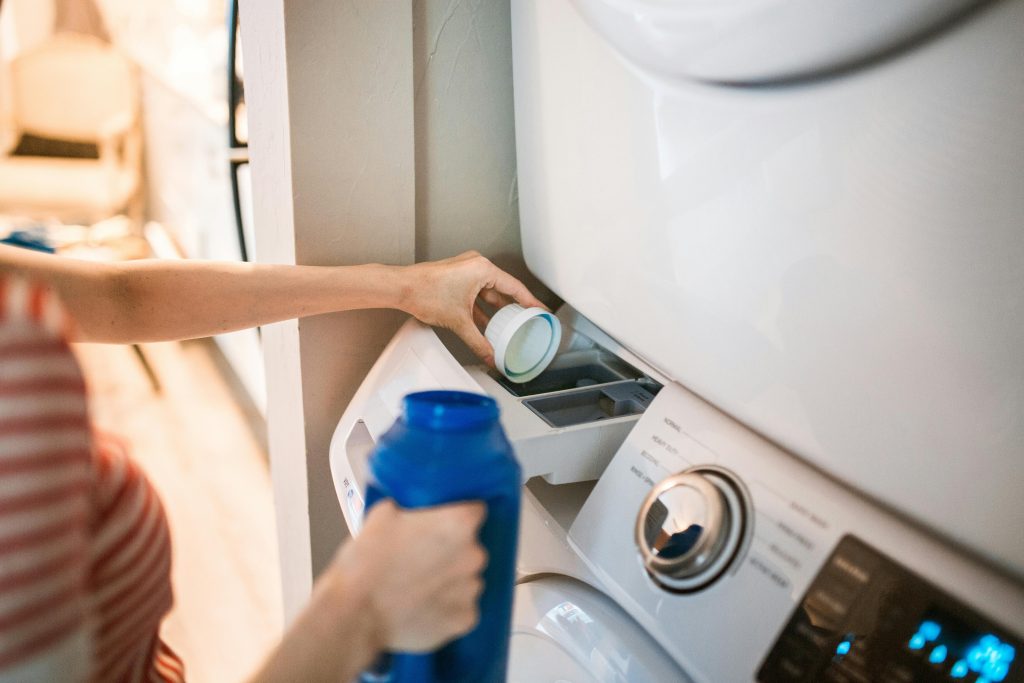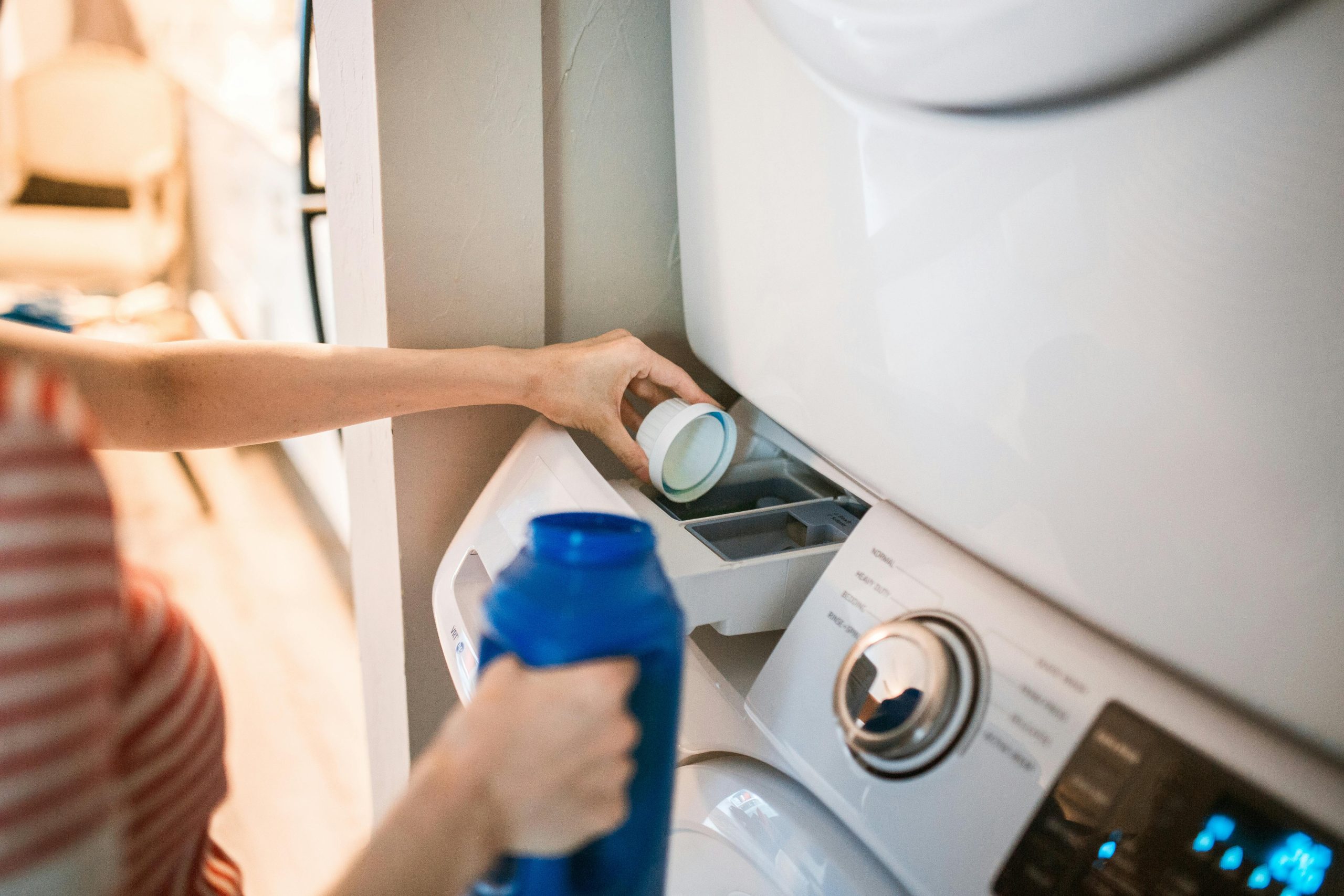“More Detergent Means Cleaner Clothes”: FALSE – Learn How Overdoing It Could Ruin Your Wash
- By LaundrybyLaura
Why Too Much Detergent is a Problem
Using too much detergent might seem like a way to get clothes cleaner, but it often has the opposite effect. Excess detergent doesn’t rinse out completely, leading to a sticky residue on fabrics that can make them look dull and feel stiff. Inside your washing machine, this buildup creates an ideal environment for mold and mildew, resulting in unpleasant odors over time. Too many suds can also trap dirt and prevent it from being rinsed away properly, leaving your laundry less clean than expected. On top of that, overusing detergent is wasteful, increasing your laundry costs without providing any added benefit.
Signs You’re Using Too Much Detergent
- Clothes feel sticky or stiff after drying
- A sour or musty smell lingers, even on freshly washed items
- Visible suds remain in the drum after the wash cycle
- You notice residue buildup in the detergent drawer or around the drum
How to Use Detergent Correctly
Read the Label
Detergent packaging isn’t just marketing—it contains valuable information about how much to use based on load size, water temperature, and soil levels. Pay attention to these guidelines, as they’re tested for optimal performance. Using too little detergent may leave clothes dirty, while too much can cause buildup and damage. If the packaging suggests a range (e.g., small, medium, or large loads), start with the smallest recommended amount and adjust only if necessary.
Consider Water Hardness
The hardness of your water directly affects how much detergent you need. Soft water requires less detergent because it allows soap to lather more easily, whereas hard water may require slightly more to break through mineral deposits. If you’re unsure about your water’s hardness, consider using a water test kit or asking your utility provider. Alternatively, try adding a water softener to your laundry routine to reduce detergent requirements and enhance cleaning power.
HE Machines Need Less
High-efficiency (HE) washing machines use less water than traditional machines, which means they need less detergent to perform effectively. Regular detergent produces excess suds that can damage HE machines and leave residue. Always use a detergent labeled “HE” and follow the instructions carefully—most HE detergents are concentrated, so a little goes a long way. Overusing detergent in an HE machine can lead to odor issues and reduce cleaning efficiency over time.
Measure Carefully
Guessing how much detergent to use can lead to overuse. Detergent caps, scoops, or pods are designed for specific measurements, so use them to avoid waste. For liquid detergents, look for fill lines inside the cap; for powders, use the provided scoop or a standard measuring spoon. Be mindful of load size—small or lightly soiled loads require far less detergent than heavily soiled or large loads. If using pods, stick to one per load unless the package specifies otherwise.
Adjust for Smaller Loads
Not every load is a full drum, and smaller loads need proportionately less detergent. If your washing machine allows you to select load size, set it to match the actual amount of laundry to ensure proper dilution and rinsing of the detergent. For loads that only fill the drum halfway or less, cut the recommended detergent amount by half or even two-thirds. This ensures your clothes are thoroughly cleaned without wasting detergent or leaving behind residue.
Pro Tip: Do a Rinse Test
If you suspect detergent buildup, try this simple test:
- Run an empty rinse cycle without detergent
- If you see suds, it’s time to cut back and clean your machine
Keep It Clean, Not Overloaded
By using the right amount of detergent, you’ll not only achieve cleaner, fresher clothes but also protect your washing machine from unnecessary wear and tear caused by excess suds and residue buildup. This simple adjustment can save you money on detergent, prevent costly repairs, and even extend the lifespan of your machine. When it comes to laundry, less really is more—both for your clothes and your wallet!
Related Posts
And just in case you never want to measure detergent again...
... check out our Total Service laundry packages to let us handle all the products your laundry will ever need!
Can you tell when your machine has been drinking too much (detergent)?
At our house, I know whenever someone has used too much detergent if I go to switch their laundry and even though it’s just been washed, it kiiiind of smells like a wet rag. Yuck! Back through another rinse cycle it goes…
Share your story below about how you realized you or your family were overdoing the detergent.


